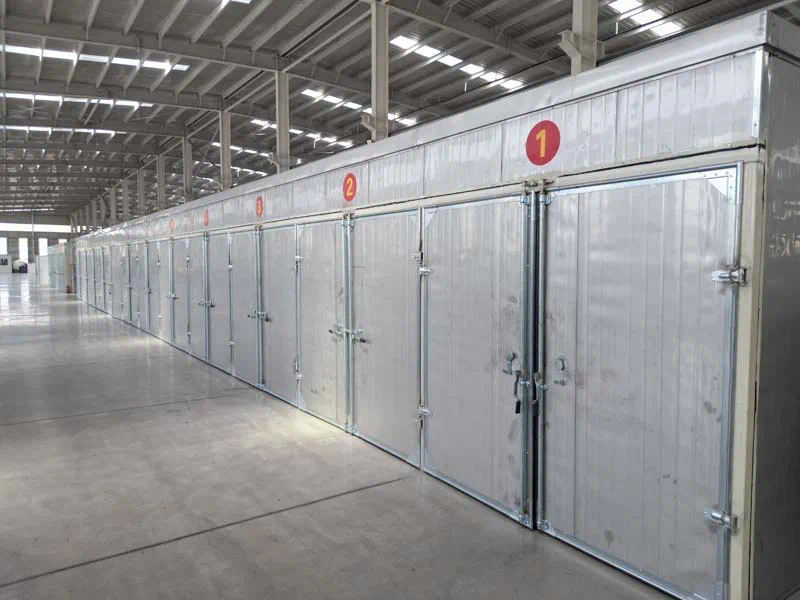Corrosion Resistance of Silicon Carbide in Chemical Equipment
Silicon carbide (SiC) has emerged as a crucial material in the realm of chemical equipment due to its exceptional corrosion resistance properties. This article explores in depth the characteristics, applications, advantages, and limitations of silicon carbide in protecting against corrosion in various chemical processes.
Introduction to Silicon Carbide
Silicon carbide, a compound of silicon and carbon with chemical formula SiC, stands out for its remarkable properties that make it highly suitable for applications requiring resistance to extreme conditions. Initially synthesized in the laboratory in the early 20th century, silicon carbide has since found its way into industrial applications, particularly where materials must withstand harsh chemical environments.
Chemical Composition and Crystal Structure
Silicon carbide exists in several crystalline forms, most commonly alpha and beta SiC. The alpha form has a hexagonal crystal structure, while beta SiC adopts a cubic crystal structure. These variations influence its mechanical and chemical properties, including its corrosion resistance.
Corrosion Mechanisms in Chemical Equipment
Corrosion in chemical equipment occurs due to various mechanisms such as oxidation, acidic attack, alkali attack, and erosion-corrosion. Understanding these mechanisms is crucial for selecting suitable materials like silicon carbide to ensure longevity and reliability in chemical processes.
Oxidation Resistance
Silicon carbide exhibits excellent oxidation resistance, primarily due to the formation of a protective silica (SiO2) layer on its surface when exposed to oxygen at elevated temperatures. This passive oxide layer acts as a barrier against further oxidation, thereby enhancing the material’s durability.
Resistance to Acids and Bases
In acidic environments, silicon carbide demonstrates superior resistance compared to metals What are silicon silicide specialty ceramics and other ceramics. It maintains its structural integrity and does not undergo significant degradation even in highly corrosive acids like hydrochloric acid (HCl) and sulfuric acid (H2SO4). Similarly, in alkaline conditions, SiC remains stable, making it suitable for applications involving strong bases such as sodium hydroxide (NaOH) and potassium hydroxide (KOH).
Erosion-Corrosion Resistance
Erosion-corrosion, a combination of mechanical wear and chemical attack, is prevalent in industries handling abrasive slurries and corrosive fluids. Silicon carbide’s hardness and toughness contribute to its resistance against erosion-corrosion, thereby prolonging equipment life in challenging operational environments.
Applications of Silicon Carbide in Chemical Equipment
The versatility of silicon carbide extends its application across various sectors within the chemical industry, where its corrosion resistance plays a pivotal role in ensuring operational efficiency and safety.
Pumps and Valves
Silicon carbide components such as seals, bearings, and bushings are widely used in centrifugal pumps and valves. These components withstand aggressive chemicals and prevent leakage, thereby reducing maintenance costs and downtime.
Heat Exchangers
In heat exchangers, silicon carbide tubes and plates offer efficient heat transfer combined with resistance to thermal shock and corrosion. This makes them suitable for applications involving heat recovery and chemical processing at elevated temperatures.
Reactors and Furnaces
Silicon carbide’s thermal stability and corrosion resistance make it ideal for lining reactors and furnaces used in chemical synthesis and refining processes. It withstands high temperatures and aggressive chemicals without undergoing degradation or structural failure.
Advantages of Using Silicon Carbide
The use of silicon carbide in chemical equipment offers several advantages over traditional materials like metals and conventional ceramics.
Longevity and Reliability
Silicon carbide’s exceptional resistance to corrosion and thermal shock ensures prolonged equipment life and reliable performance in demanding industrial environments. This durability reduces downtime and maintenance costs, enhancing overall operational efficiency.
Enhanced Safety
The inert nature of silicon carbide minimizes the risk of contamination in chemical processes, ensuring product purity and safety compliance. This is critical in industries such as pharmaceuticals, food processing, and semiconductor manufacturing.
Limitations and Challenges
Despite its many advantages, silicon carbide does have limitations and challenges that influence its application in chemical equipment.
Cost Considerations
The production of silicon carbide components involves complex manufacturing processes, resulting in higher initial costs compared to conventional materials. However, its long-term benefits often justify the initial investment in terms of reduced maintenance and replacement expenses.
Mechanical Properties
While silicon carbide is exceptionally hard and wear-resistant, it can be brittle under certain conditions. Careful design considerations are necessary to prevent mechanical failure due to stress concentrations or impact loading.
Future Trends and Developments

The future of silicon carbide in chemical equipment looks promising with ongoing research and development focused on enhancing its performance and cost-effectiveness.
Advanced Manufacturing Techniques
Advancements in manufacturing techniques, such as additive manufacturing (3D printing) and advanced sintering processes, are expected to streamline production and reduce costs associated with silicon carbide components.
Novel cdn cgi email protection Applications
Emerging applications in renewable energy, water treatment, and aerospace industries are expanding the use of silicon carbide beyond traditional chemical processing, driven by its unique combination of properties.
Conclusion
In conclusion, silicon carbide stands as a cornerstone material in the realm of chemical equipment, offering unparalleled corrosion resistance, thermal stability, and mechanical durability. Its widespread adoption underscores its critical role in enhancing operational efficiency, safety, and sustainability across various industrial sectors. As technological advancements continue to evolve, silicon carbide is poised to maintain its position as a material of choice for challenging chemical environments, paving the way for innovative solutions and industrial advancements.
https://abcicon.com/
